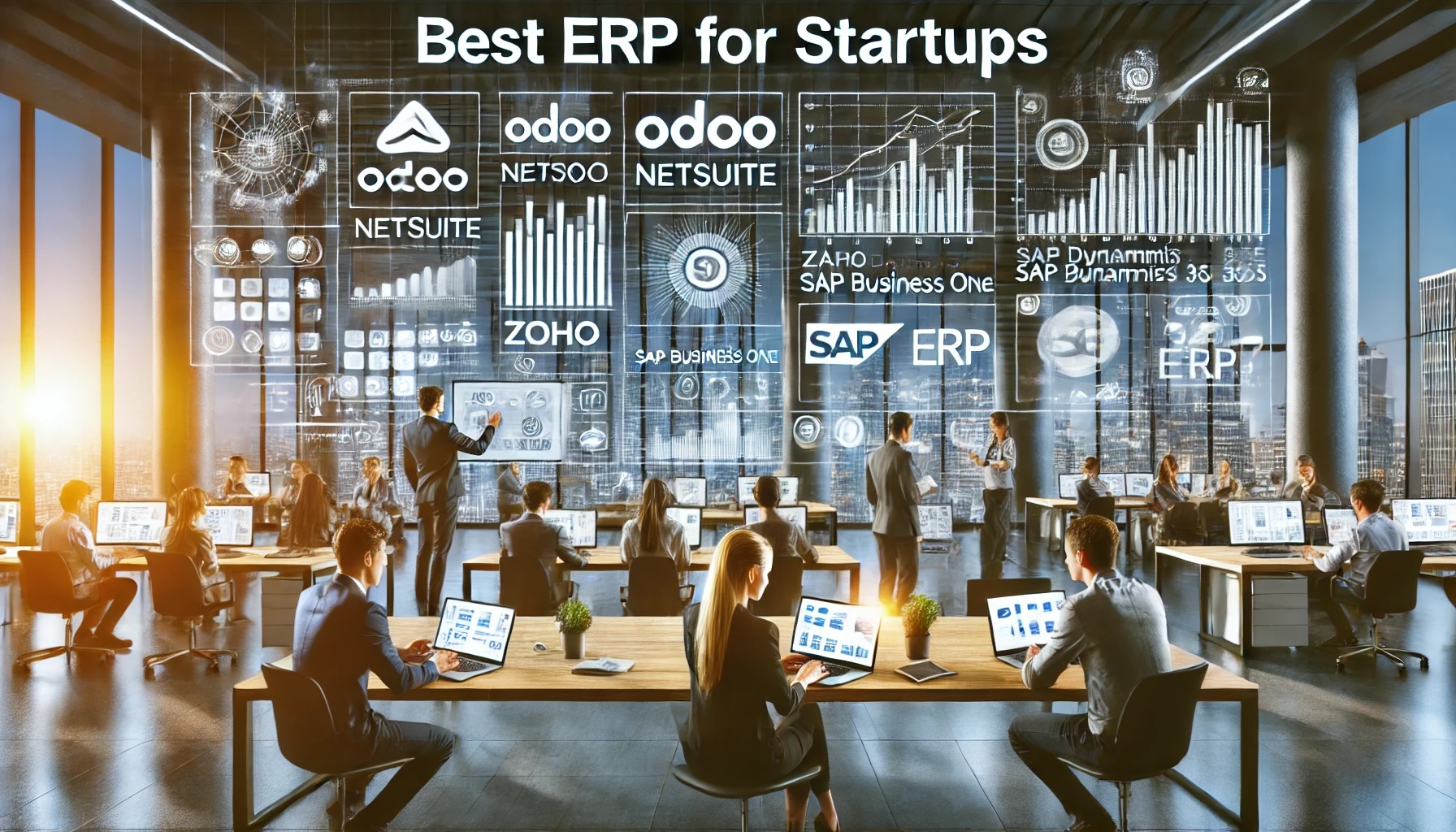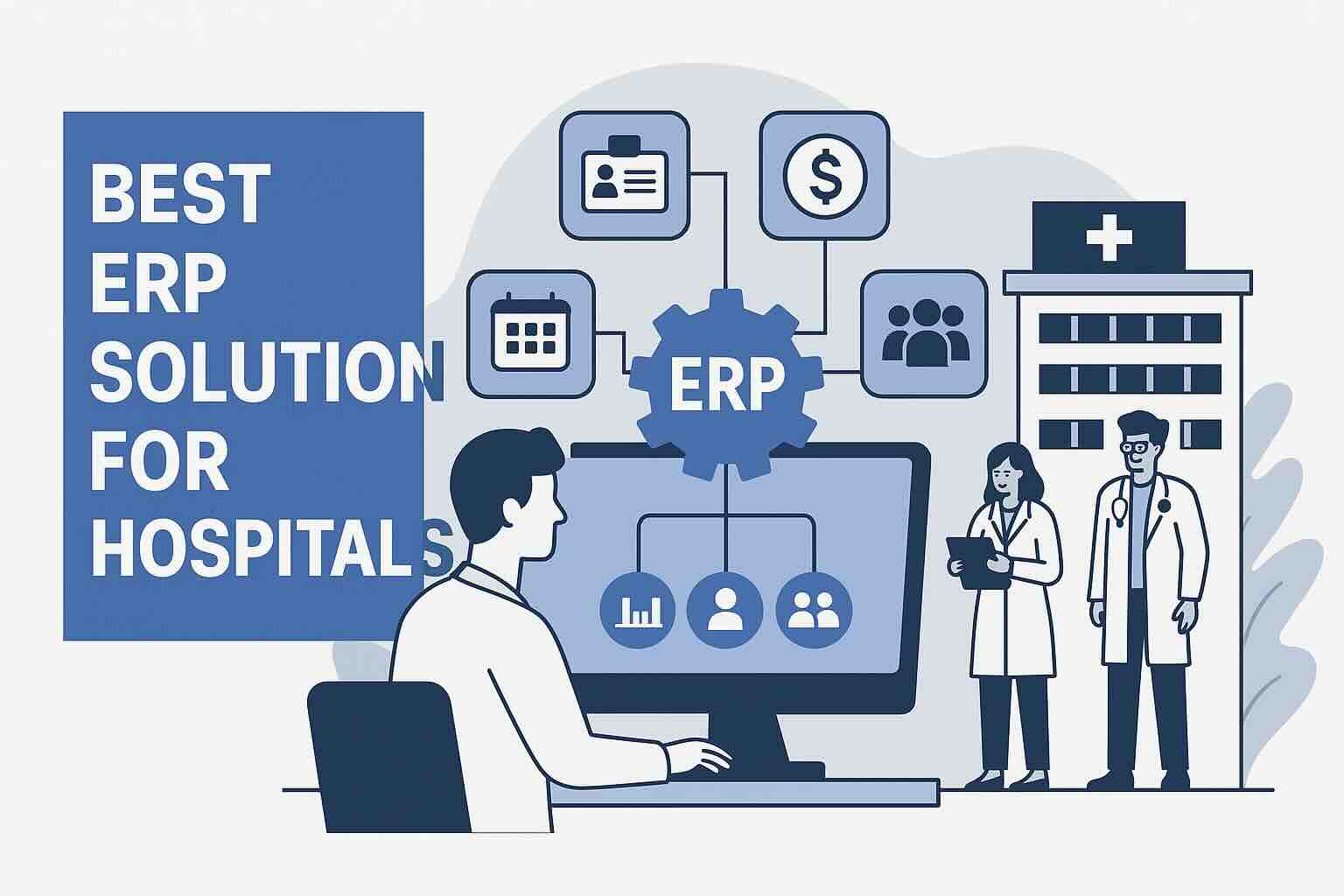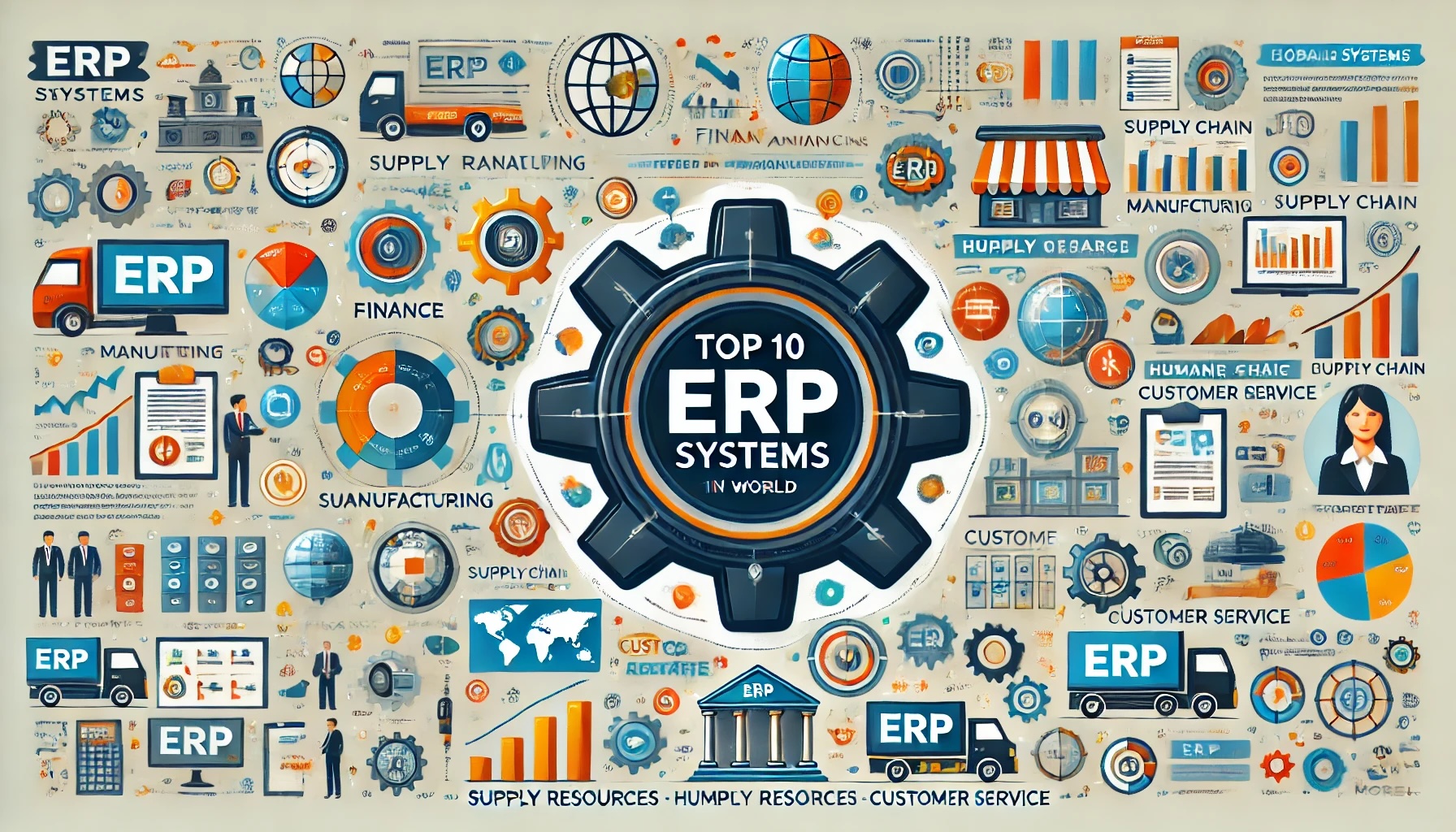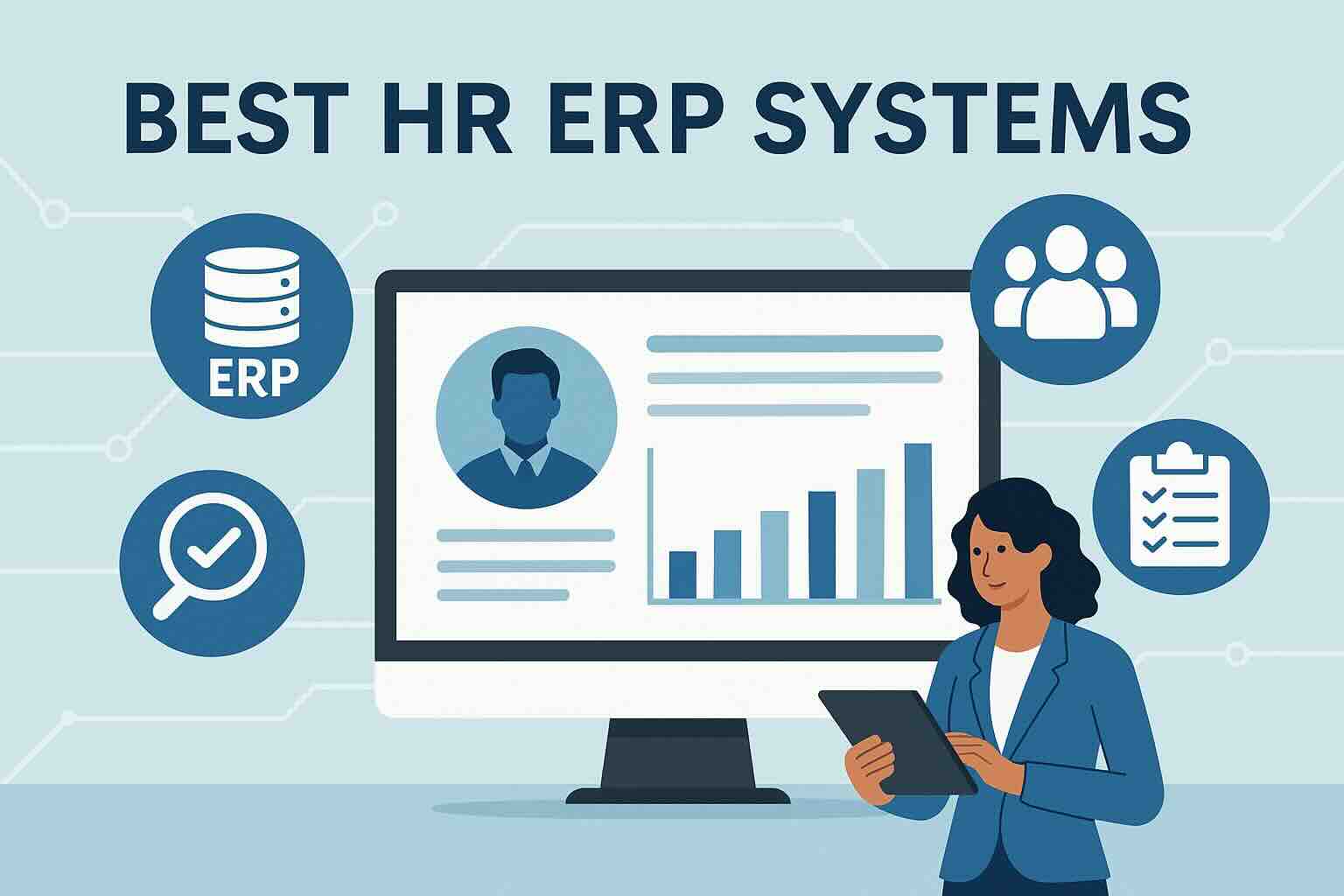Best ERP for Startups: A Comprehensive Guide to Choosing the Right Solution

In the fast-paced world of startups, efficiency, scalability, and data-driven decision-making are crucial. Enterprise Resource Planning (ERP) systems can be a game-changer, providing integrated management of core business processes. But with numerous options on the market, how do you determine the best ERP for startups? This guide will help you navigate the landscape and make an informed decision.
Why Startups Need an ERP System
Startups often face unique challenges, including limited resources, rapid growth, and the need for agility. An ERP system can help streamline operations by integrating various business functions such as finance, HR, inventory, and customer relationship management (CRM) into a single system. This integration facilitates real-time data access, improved decision-making, and increased efficiency.
Key Features to Look for in the Best ERP for Startups
When selecting an ERP system, startups should consider the following features:
- Scalability: The ERP should grow with your business, handling increased transactions, users, and data as you expand.
- Affordability: Startups often operate on tight budgets. Look for cost-effective solutions with transparent pricing models.
- Ease of Use: An intuitive interface and easy-to-use features are crucial for quick adoption and minimal training.
- Customization and Flexibility: The ability to tailor the system to your specific needs can be a significant advantage.
- Cloud-Based Solutions: Cloud ERP systems offer lower upfront costs, regular updates, and the flexibility to access data from anywhere.
- Integration Capabilities: Ensure the ERP can integrate with your existing tools and software, such as CRM, e-commerce platforms, and marketing automation tools.
- Support and Training: Reliable customer support and comprehensive training resources can make a big difference in your ERP implementation success.
Top ERP Systems for Startups
Here are some of the best ERP solutions tailored for startups, along with their features, pros, and cons:
1. Odoo
Odoo is a highly versatile ERP system with a modular design, allowing startups to start with the basics and expand as their needs grow. Its open-source nature means it can be extensively customized to fit specific business requirements.
Features:
- Modular design with various applications such as CRM, sales, inventory, accounting, and project management.
- Open-source platform allowing extensive customization.
- Cloud-based and on-premise deployment options.
Pros:
- Highly customizable to fit specific business needs.
- Affordable, with a free version available.
- User-friendly interface.
Cons:
- May require technical expertise for customization.
- Limited functionality in the free version.
- Integration with third-party apps can be challenging.
2. NetSuite
NetSuite, a cloud-based ERP by Oracle, is renowned for its comprehensive suite of applications tailored for startups. It offers robust features covering financials, CRM, e-commerce, and more, making it a popular choice for high-growth businesses.
Features:
- Comprehensive suite covering financials, CRM, e-commerce, and more.
- Cloud-based with real-time data access.
- Advanced reporting and analytics capabilities.
Pros:
- Robust features suitable for high-growth startups.
- Scalable, able to handle increased transactions and data.
- Strong support and extensive resources.
Cons:
- Higher cost compared to other ERP solutions.
- Implementation can be complex and time-consuming.
- Requires training for effective use.
3. Zoho ERP
Zoho ERP offers a range of applications that can be integrated to create a customized solution for startups. Known for its affordability and ease of use, Zoho ERP is ideal for startups looking for a cost-effective and scalable solution.
Features:
- Range of applications that can be integrated to create a tailored ERP solution.
- Affordable pricing with various subscription plans.
- Cloud-based with mobile access.
Pros:
- Cost-effective, ideal for startups with tight budgets.
- Easy to use with minimal training required.
- Excellent customer support and extensive documentation.
Cons:
- Limited functionality compared to more expensive ERPs.
- Integration between applications can sometimes be inconsistent.
- Customization options are not as extensive as other ERPs.
4. SAP Business One
SAP Business One is designed specifically for small and medium-sized businesses. It offers a comprehensive set of features that cover financial management, sales, inventory, and production planning, making it suitable for startups planning long-term growth.
Features:
- Designed specifically for small and medium-sized businesses.
- Comprehensive functionality including financial management, sales, inventory, and production planning.
- On-premise and cloud deployment options.
Pros:
- Strong support network and extensive training resources.
- Scalable, suitable for long-term growth.
- Reliable and secure.
Cons:
- Higher initial cost, especially for on-premise deployment.
- Can be complex to implement and manage.
- May require significant customization to fit specific needs.
5. Microsoft Dynamics 365
Microsoft Dynamics 365 combines ERP and CRM capabilities into a single cloud-based solution. Its seamless integration with other Microsoft products and advanced analytics capabilities make it a strong contender for startups aiming to scale rapidly.
Features:
- Combines ERP and CRM capabilities in a single cloud-based solution.
- Seamless integration with other Microsoft products such as Office 365 and Azure.
- Advanced analytics and AI-driven insights.
Pros:
- Familiar environment for users already using Microsoft products.
- Highly flexible and customizable.
- Strong scalability and robust feature set.
Cons:
- Can be expensive, especially for premium features.
- Complexity in setup and customization may require professional assistance.
- Requires ongoing maintenance and updates.
How to Implement the Best ERP for Your Startup
Implementing an ERP system can be a daunting task, but with the right approach, it can be seamless and beneficial:
- Define Your Requirements: Clearly outline your business needs, processes, and goals. Identify the features and functionalities you need in an ERP system.
- Research and Shortlist: Based on your requirements, research and shortlist ERP solutions that fit your criteria.
- Request Demos and Trials: Engage with vendors to demo their products. Use free trials to test the system’s functionality and ease of use.
- Evaluate Costs: Consider the total cost of ownership, including licensing fees, implementation costs, and ongoing maintenance.
- Plan the Implementation: Develop a detailed implementation plan, including timelines, resource allocation, and risk management strategies.
- Train Your Team: Ensure your team is adequately trained to use the new system. Provide ongoing support and resources to facilitate a smooth transition.
- Monitor and Optimize: Continuously monitor the system’s performance and gather feedback from users. Optimize processes and make adjustments as needed.
Conclusion
Choosing the best ERP for startups is a critical decision that can significantly impact your business’s growth and efficiency. By considering key features, evaluating top solutions, and following a structured implementation process, you can find an ERP system that aligns with your startup’s needs and sets you up for long-term success.
Investing in the right ERP solution can transform your startup, enabling you to manage resources more effectively, make informed decisions, and scale seamlessly. Take the time to research, plan, and implement the best ERP for your startup, and you’ll be well on your way to achieving your business goals.
To compare these ERP solutions and many more, you can use our new AI-powered Compare ERP tool. It’s free to use and you get a guaranteed discount on your first year’s licence fees with a referral from Compare ERP.









